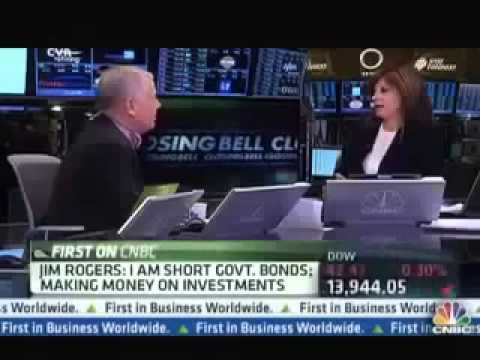Zacks Investment Ideas feature highlights iShares MSCI Brazil Index Fund WisdomTree Brazilian
Post on: 13 Май, 2015 No Comment

CHICAGO. Feb. 6, 2013 /PRNewswire/ — Today, Zacks Investment Ideas feature highlights Features: iShares MSCI Brazil Index Fund (AMEX: EWZ ), WisdomTree Brazilian Real (AMEX: BZF ), iShares MSCI Japan Index (AMEX: EWJ ), CurrencyShares Japanese Yen Trust (AMEX: FXY ) and WisdomTree Japan Hedged Equity Index Fund (AMEX: DXJ ).
The Key to International ETF Investing
Investors have largely embraced international ETFs to start 2013. Funds tracking emerging markets have seen particularly huge inflows and are easily setting the pace for ETFs this year.
Yet while many investors may be jumping into these products, some might not understand one of the biggestand arguably most importantaspects of these types of funds, currency exposure. While this seemingly insignificant issue may be an afterthought for most, it can actually be a huge driver, or even the main determinant, of performance in a given time period.
That is because for American investors in foreign securities, returns consist of two components; the performance of the underlying stocks +/- the foreign currency impact.
Depending on how the dollar has traded, this forex aspect can result in a big difference when returns are repatriated back to dollars. If the dollar has strengthened against international currencies, total returns will be lower, while the opposite will be the case when the U.S. currency is facing global weakness (read Currency Hedged ETFs: Top International Picks? ).
This is especially true when investors look at countries which have seen huge currency swings (relative to the dollar) in recent trading. Two important markets where this has been true over the past year are Brazil and Japan .
Brazil & the Real
In the case of Brazil. many of its ETFs experienced a rocky 2012 and largely finished the year in the negatives. In fact, the nation’s most popular ETF, the iShares MSCI Brazil Index Fund (AMEX: EWZ ) finished 2012 down about 4.6%, a huge reversal of trends for the once-booming economy.
While this is a pretty disappointing figure, investors should note that the Brazilian market was actually up on the year, if you look at it in Brazilian real terms instead. The nation’s currency lost about 5% against the dollar in 2012 so nearly all of the loss last year for U.S. investors was thanks to Brazilian real weakness (see Time to Worry about Brazil ETFs? ).
Consider the chart below which shows EWZ and WisdomTree Brazilian Real (AMEX: BZF ) representing the realover the past year:
As you can see, both have moved in a narrow range lower for much of the year. Additionally, without the sluggish real dragging down EWZ’s performance, the past 12 months wouldn’t have been nearly as bad, probably closer to half as bad in fact.
Even Worse in Japan
This problem has been even more apparentbut at least avoidablewhen looking at Japanese ETF investments over the past few months.
In this time period, rumblings over a weak currency policy and higher inflation thanks to the new Japanese Prime Minister have pushed the yen to fresh lows. This has had a huge impact on sentiment over Japan and has caused many to rethink investing in the nation, although the results have been skewed due to the rapid deterioration of the yen in the time frame.
In the past three months, the most popular Japan ETF, iShares MSCI Japan Index (AMEX: EWJ ). has added about 11%, largely thanks to this booming confidence. However, in the same time period, the yenas represented by CurrencyShares Japanese Yen Trust (AMEX: FXY ) — has declined by about 13% (read Play a Resurgent Japan with These Three ETFs ).
So in yen terms, the broad Japanese market is up more than 20% on the year. But when U.S. investors repatriate these assets into dollars, thanks to the yen’s slump, roughly half of their gains disappear for American buyers.
Fortunately, at least in Japan ‘s case, there is a liquid way to avoid this situation with a currency-hedged ETF. This product, the WisdomTree Japan Hedged Equity Index Fund (AMEX: DXJ ). strips out the yen exposure, leaving investors with a pure play on Japanese stocks.

When the yen is sliding and Japanese stocks are surging, this can be a brilliant play, although if the yen strengthens investors could lose out on some gains. However, yen strength obviously hasn’t been the case as of late and it has made DXJ the top choice for Japanese ETF investing by a pretty wide margin:
Bottom Line
Currency exposure matters, and it can add up in a hurry. Even a correct call on a country can turn into a losing trade if the foreign currency exposure doesn’t go your way.
So, either consider hedged or dollar-denominated products to avoid this issue, or make sure you are bullish on a nation’s currency as well. If not, you may be disappointed with the results when looking at them in U.S. dollars, should the greenback continue to strengthen against foreign currencies (see Three Biggest Mistakes of ETF Investing ).
Clearly, both a favorable forex impact and solid stock returns are necessary for those seeking truly outstanding performances in international ETFs. Just make sure that you consider this key aspect the next time you are looking at an ETF, or even any international stock, before you dive in.
 About Zacks
Zacks.com is a property of Zacks Investment Research, Inc. which was formed in 1978 by Len Zacks. The company continually processes stock reports issued by 3,000 analysts from 150 brokerage firms.  It monitors more than 200,000 earnings estimates, looking for changes.
at.zacks.com/?id=7298
Zacks Investment Research is under common control with affiliated entities (including a broker-dealer and an investment adviser), which may engage in transactions involving the foregoing securities for the clients of such affiliates.
Disclaimer: Past performance does not guarantee future results. Investors should always research companies and securities before making any investments. Nothing herein should be construed as an offer or solicitation to buy or sell any security.














